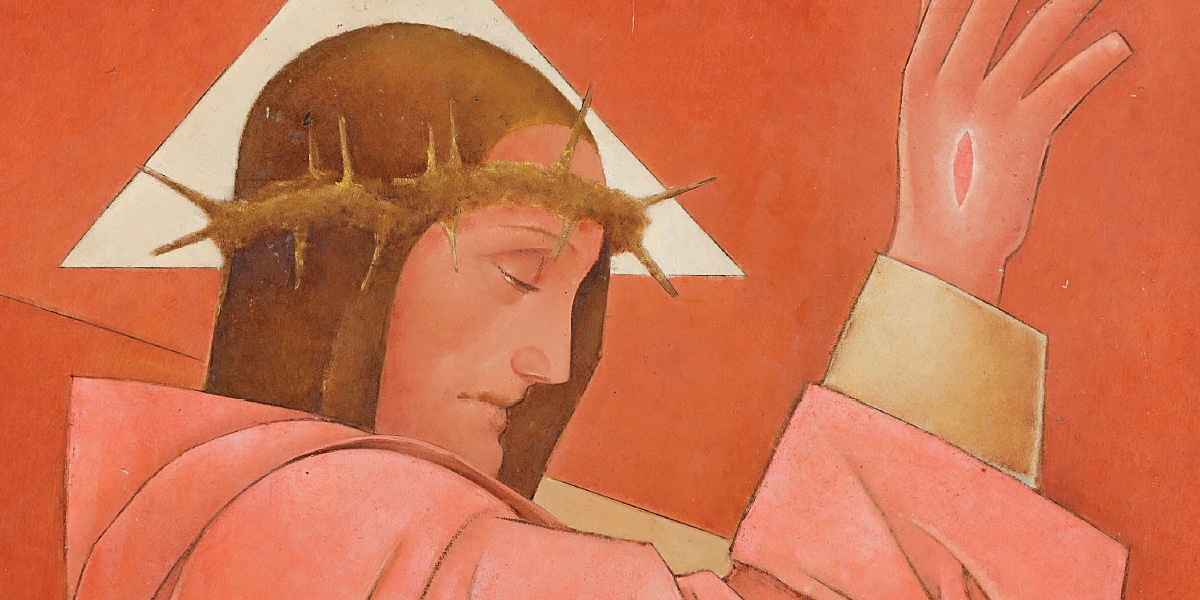Why does Jesus refer to himself much more often as the “Son of Man” than as the “Son of God”?
You are right about his preferred self-description. Using the Concordance of the New American Bible, I count in the Gospel of Matthew 31 uses of “Son of Man” and 10 uses of “Son of God.” The corresponding uses in Mark, Luke, and John are 17/5, 22/9, and 15/23, respectively. Mark is considered the earliest Gospel to reach its final text (c. AD 65), and John was the last (c. AD 95). Luke and Matthew borrowed heavily from the Gospel of Mark but have sections that are uniquely theirs (parts of the infancy narratives, for example).
The “Son of God” uses cited above more often come not from Jesus himself but usually from others, sometimes in approval and other times in derision (for example, in John 19:7 by some people at Jesus’ crucifixion). Not surprisingly, Jesus used this self-description most often in John, which has a much more developed theology about Jesus Christ.
The main Jewish objection to Jesus during his ministry was the expression “Son of God” because it seemed to deny monotheism, the most basic foundation of Judaism (Dt 6:4). Christians have always identified themselves as monotheists but, in fact, needed several centuries to speak precisely about the relationships of God the Father, Son, and Holy Spirit.
A Concise Dictionary of Theology (by Gerald O’Collins, SJ, and Edward Farrugia, SJ) notes that the prophet Ezekiel repeatedly uses the expression “Son of Man” to describe himself as a weak prophet. The prophet Daniel uses the same term in 7:13–14 for a heavenly apocalyptic figure. This dictionary also says that this expression is later used as a way of affirming Jesus’ humanity. Naturally, this term in no way denies his divine nature.
Fostering Compassion and Forgiveness
How can people promote compassion and forgiveness in society?
If they are Christians, they can do this by living out the Sacrament of Baptism that they have all received. It is received only once but must be lived out daily in the changing circumstances of a person’s life. If people are not Christian, they can foster compassion and forgiveness by living out the Golden Rule: Do unto others what you would have them do unto you.
Although we are grateful if forgiveness is reciprocated, that is not required. I forgive because that is who I am, not simply because other people accept my decision to forgive them. It’s much easier if forgiveness (one-sided) and reconciliation (mutual) occur together, but that is not required. Forgiveness frees the person who does the forgiving even if it is not reciprocated.
Churches, Not Rites
Is the Eastern-Rite Catholic Church under Pope Leo XIV?
Yes, but terminology is very important here. The terms Churches and rites are not interchangeable. There is no “Eastern Catholic Church,” but rather there are 26 Eastern Catholic Churches or jurisdictions, all in full communion with Pope Leo XIV. Some of them use the same liturgical traditions. Several Eastern Catholic cardinals voted in the conclave that elected him as the bishop of Rome.
Although the Western Church usually uses the Roman (Latin) rite, it also has other rites (Ambrosian, Dominican, or Mozarabic, for example) authorized for certain places or particular groups. These liturgical rites existed for several centuries before the Roman rite’s Tridentine Mass was promulgated in 1570. A Zairean rite was approved in 1988.
Synods of bishops in the Eastern Catholic Churches elect their own bishops (often called eparchs or archeparchs), with whom the bishop of Rome establishes communion. These Churches deal with the Holy See through its Dicastery of Eastern Catholic Churches.
In addressing Eastern Catholic patriarchs and other leaders for the Jubilee of Eastern Catholic Churches on May 14, Pope Leo XIV said: “You are precious in God’s eyes. I think of the diversity of your origins, your glorious history, and the bitter sufferings that many of your communities have endured or continue to endure.
“I would like to reaffirm the conviction of Pope Francis that the Eastern Churches are to be ‘cherished and esteemed for the unique spiritual and sapiential traditions that they preserve, and for all that they have to say to us about the Christian life, synodality, and the liturgy. We think of early Fathers, the councils, and monasticism . . . inestimable treasures of the Church.’”
Because of immigration, many members of these Churches live far from their original lands. The Western Church, the pope said, needs to rediscover in these Churches “a sense of the primacy of God, the importance of mystagogy, and the values so typical of Eastern spirituality: constant intercession, penance, fasting, and weeping for one’s own sins and for those of all humanity (penthos)!” Visit Vatican.va for the full text of this address in several languages.
Quick Questions and Answers
Can divorced Catholics still belong to the Catholic Church?
Yes. If they have remarried, the Church encourages them to regularize their status through the convalidation process. They can begin the process at any Catholic parish before it moves on to their diocese.
Where can I find information about Holy Year activities?
Your parish or diocesan website may have them. Visit USCCB.org/Jubilee2025 for US events and Iubilaeum2025.va/en.html for those sponsored by the Holy See.
Can Catholics attend Protestant or ecumenical services?
Yes, because these recognize their common faith and Baptism. Catholics should not, however, receive Communion if it is offered because while the action is virtually the same, what they believe about it is not. Recent popes have participated in such services on their apostolic journeys and especially for the celebration in Rome of the feast of the Conversion of St. Paul.


